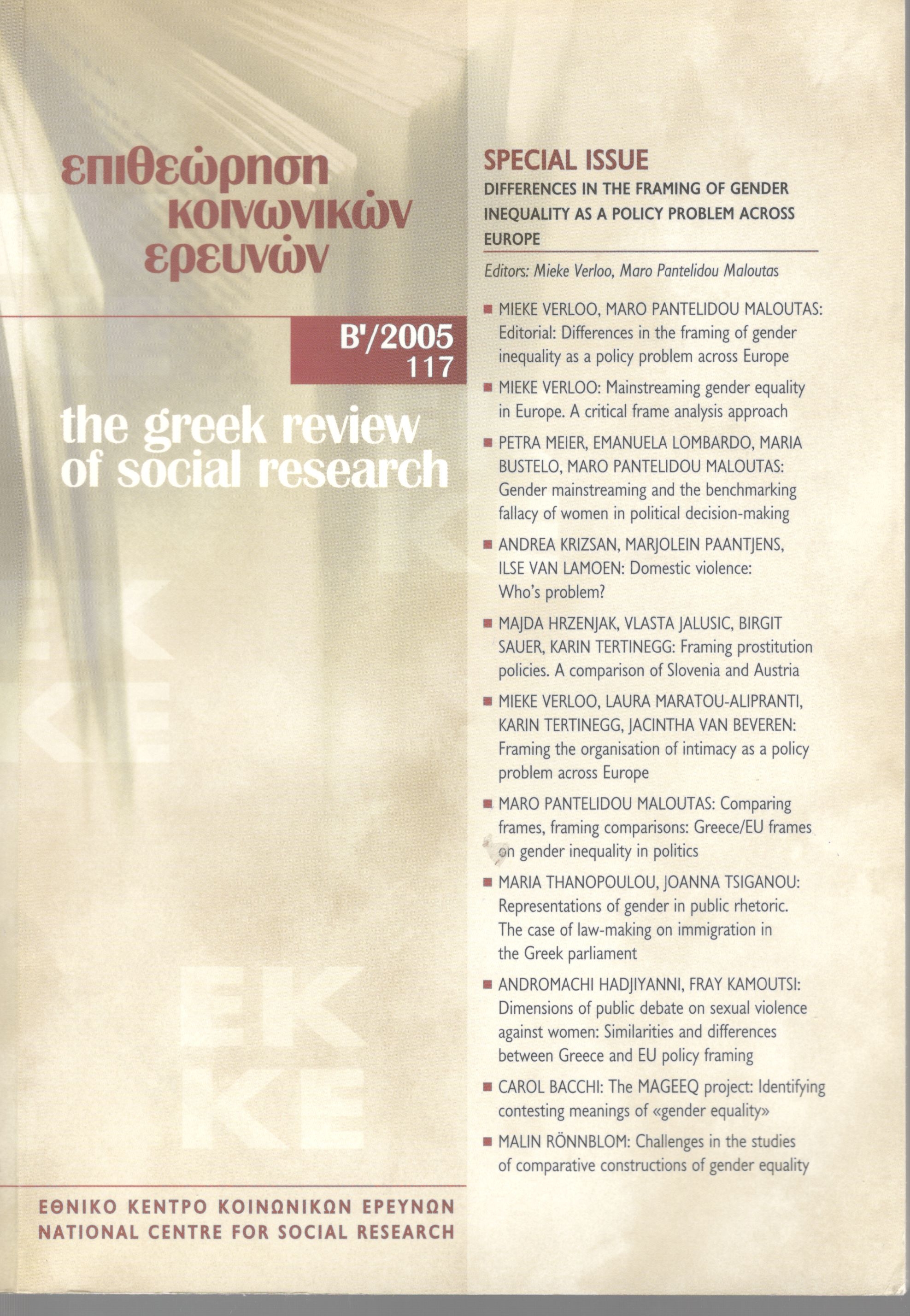Challenges in the studies of comparative constructions of gender equality
Abstract
Why are comparisons interesting, or what are comparisons all about? In this article, the comparative ambition in the social constructivist tradition is scrutinized, and the other articles of the issue are used as examples of what is seen as principle problems of comparative studies. The first part of the article deals with the need of reflexivity in order for the researcher to avoid implicit notions of «good gender equality» or «real feminism». In the second part, the problems of comparative studies are more specifically addressed, by both discussing the traditional legacy of comparative politics and bringing forward possible alternatives for non-positivistic comparative analyses. The article ends by asking for a reflexive intersectional comparative approach.
Article Details
- How to Cite
-
Rönnblom, M. (2016). Challenges in the studies of comparative constructions of gender equality. The Greek Review of Social Research, 117, 235–249. https://doi.org/10.12681/grsr.9565
- Section
- Articles

This work is licensed under a Creative Commons Attribution-NonCommercial 4.0 International License.
Authors who publish with this journal agree to the following terms:
- Authors retain copyright and grant the journal right of first publication with the work simultaneously licensed under a Creative Commons Attribution Non-Commercial License that allows others to share the work with an acknowledgement of the work's authorship and initial publication in this journal.
- Authors are able to enter into separate, additional contractual arrangements for the non-exclusive distribution of the journal's published version of the work (e.g. post it to an institutional repository or publish it in a book), with an acknowledgement of its initial publication in this journal.
- Authors are permitted and encouraged to post their work online (preferably in institutional repositories or on their website) prior to and during the submission process, as it can lead to productive exchanges, as well as earlier and greater citation of published work (See The Effect of Open Access).



